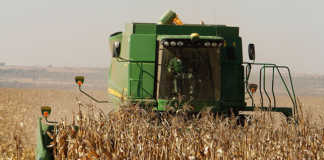Consensus has finally been reached on the various sticking points – although it may still take another two years for the new legislation to be enacted.
“The process to reach consensus on the review of the Sugar Act and Sugar Industry Agreement has taken a long time. However, the investment of time and effort by growers and millers in this process was necessary and the patience displayed has been rewarded with an exciting future for the sugar industry and growers, as the various opportunities that we anticipate will materialise,” said David Wayne, Canegrowers Executive Director.
The review puts forward the concept of vertical slicing, where millers and their growers share a wider spread of proceeds from sugar processing. Currently, growers receive proceeds only from sugar and molasses, but a wider, more flexible approach will see growers getting a share of proceeds from other downstream products such as animal feed and ethanol production.
“The proceeds sharing arrangement between millers and growers in respect of sugar and molasses will still be in place. However, the new dispensation allows for growers and millers to share, on an agreed basis, in other value-add opportunities that arise from processing the sugar cane plant. This will be subject to negotiation at the local level.
It will depend on how soon these further value-add opportunities are acted upon in each area, as to how soon growers will experience the benefits associated with the potential broader revenue base. Some projects, such as the co-generation of electricity utilising the bagasse product, will come on stream quicker than others. As growers’ sustainability improves, so too will the ability for the cane growing communities to continue to contribute to the development of rural areas,” Wayne said.
Net industry proceeds for the 2012/2013 season totalled almost R10,5 billion, of which growers’ share of 64,3% amounts to R6,7 billion. However, a cost survey showed that growers’ profits have been eroded, with gross income (GI) per hectare increasing by 10,3% while real operating expenditure (OE) increased by 14,8% in 2011/2012 relative to 2010/2011. In the 2011/2012 season, farm staff and mechanical costs dominated expenditure, accounting for 53% of OE.
Growers believe that the new policy and industry framework will prevent further erosion of growers’ revenue and put growers in a position to enhance their business interests within the respective proposed vertical slices.
With consensus now reached, the next step will be to finalise the details of the reviewed strategic changes to the sugar industry. “Once finalised, these strategic changes will need to be presented to the Department of Trade and Industry (DTI) for consideration in its review of sugar industry-related legislation. Canegrowers will embark on a series of regional information meetings to inform growers of the envisaged changes to the grower/miller partnership arrangements,” said Wayne.
If matters proceeded smoothly through the various stages of the legislative process, the revised Sugar Act could be in place by 1 April 2015, Wayne said.
Both Illovo and Tongaat-Hulett declined to comment, saying it was an industry-led initiative












